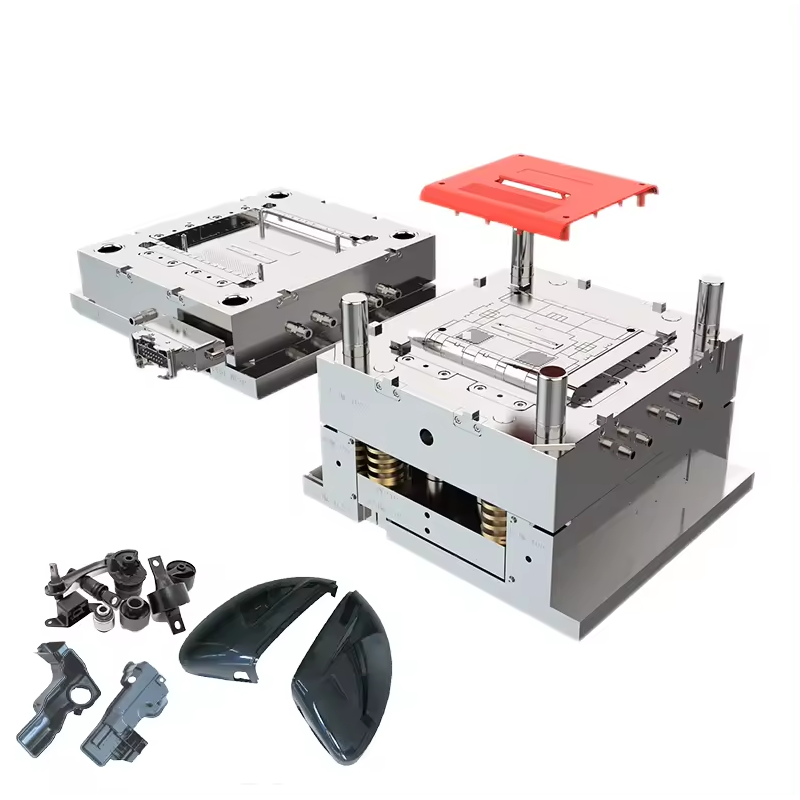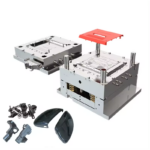Professional High-Quality Injection Molding for Automotive Plastic Parts
Details:
– Origin: Xiamen, China
– Brand: OEM/ODM
– Material: Metal
– Product: Cosmetic Injection Mold
– Mould Material: P20/718/738/NAK80/S136/2738/2316/H13
– Mould Cavity: 1*2, 1*4, 1+1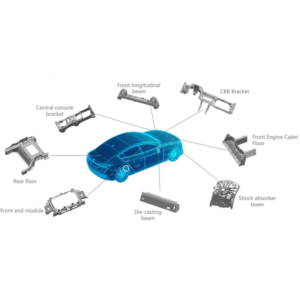
– Mould Life: 300,000-500,000 Shots
– Color: Customized Color
– Runner: Cold Runner
– Gate Type: Sub-gate
– Surface Finishing: VDI Texture
– Delivery Time: 30 Days
– Package: Wooden Box
Key Elements of Precision Injection Molding:
Precision is paramount in every stage of injection mold manufacturing. Here are the key factors that contribute to achieving precision in injection molding:
Design Accuracy: The design phase lays the groundwork for a successful mold. Accurate and detailed designs ensure that the final product meets specifications without defects.
Machining Excellence: CNC machining transforms designs into precise mold components. Machinists must execute with precision to maintain design specifications accurately.
Tolerance Management: Tight tolerance control ensures consistent part dimensions and quality. Deviations from specified tolerances can lead to defects.
Surface Quality: The surface finish affects the appearance and quality of molded parts. Achieving smooth, uniform surfaces minimizes defects and ensures proper material flow.
Quality Assurance: Rigorous quality checks throughout the process verify accuracy, functionality, and durability, ensuring high-quality molds.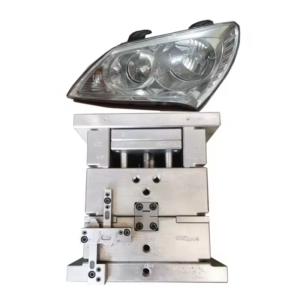
Material Selection: Choosing the right material is crucial for mold durability and performance. Different materials offer varying hardness, wear resistance, and thermal conductivity.
Continuous Improvement: Continuous refinement of designs and processes through testing and optimization leads to enhanced mold quality and efficiency over time.
Testing Process for Automotive Plastic Parts Injection Molding:
- Dimensional Inspection: Precise measurement of critical dimensions to ensure compliance with design specifications.
- Material Testing: Evaluation of material properties such as tensile strength, impact resistance, and heat resistance to verify suitability for automotive applications.
- Fit and Assembly Testing: Verification of part fitment and assembly compatibility with other components in the automotive system.
- Functionality Testing: Testing the functional performance of the molded parts under simulated operating conditions to ensure proper operation.
- Durability Testing: Subjecting the parts to rigorous durability tests to assess their ability to withstand harsh automotive environments and extended use.
- Leakage Testing: Testing for leaks or seal integrity, especially for parts used in fluid-handling systems such as fuel systems or cooling systems.
- Surface Finish Inspection: Examination of the surface finish to ensure it meets quality standards and aesthetic requirements.
- Color Matching: Evaluation of color consistency and matching with automotive interior or exterior color schemes.
- Environmental Testing: Exposure to environmental conditions such as temperature, humidity, and UV radiation to assess long-term performance and stability.
- Vibration and Noise Testing: Assessment of vibration resistance and noise levels to ensure comfort and reliability in automotive applications.
Mold Packaging & Shipping:
- Antirust coating applied to core and cavity surfaces.
- Butter coating applied to mold surfaces.
- Mold wrapped in plastic membrane.
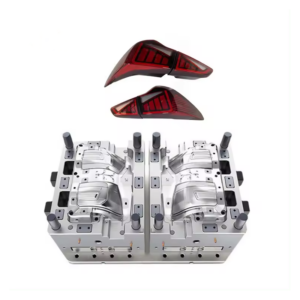 Mold placed into wooden case.
Mold placed into wooden case.- Spare parts and all data sheets (2D/3D drawings and revised drawings) included. Wear parts such as springs, ejector pins, cooling connectors, eye bolts will be packed together with the mold.
Post-Sale Support:
– Round-the-clock dedicated support
– On-site video assistance from experienced engineers
– Extensive service network for comprehensive support
– Multilingual support available in English and local languages

